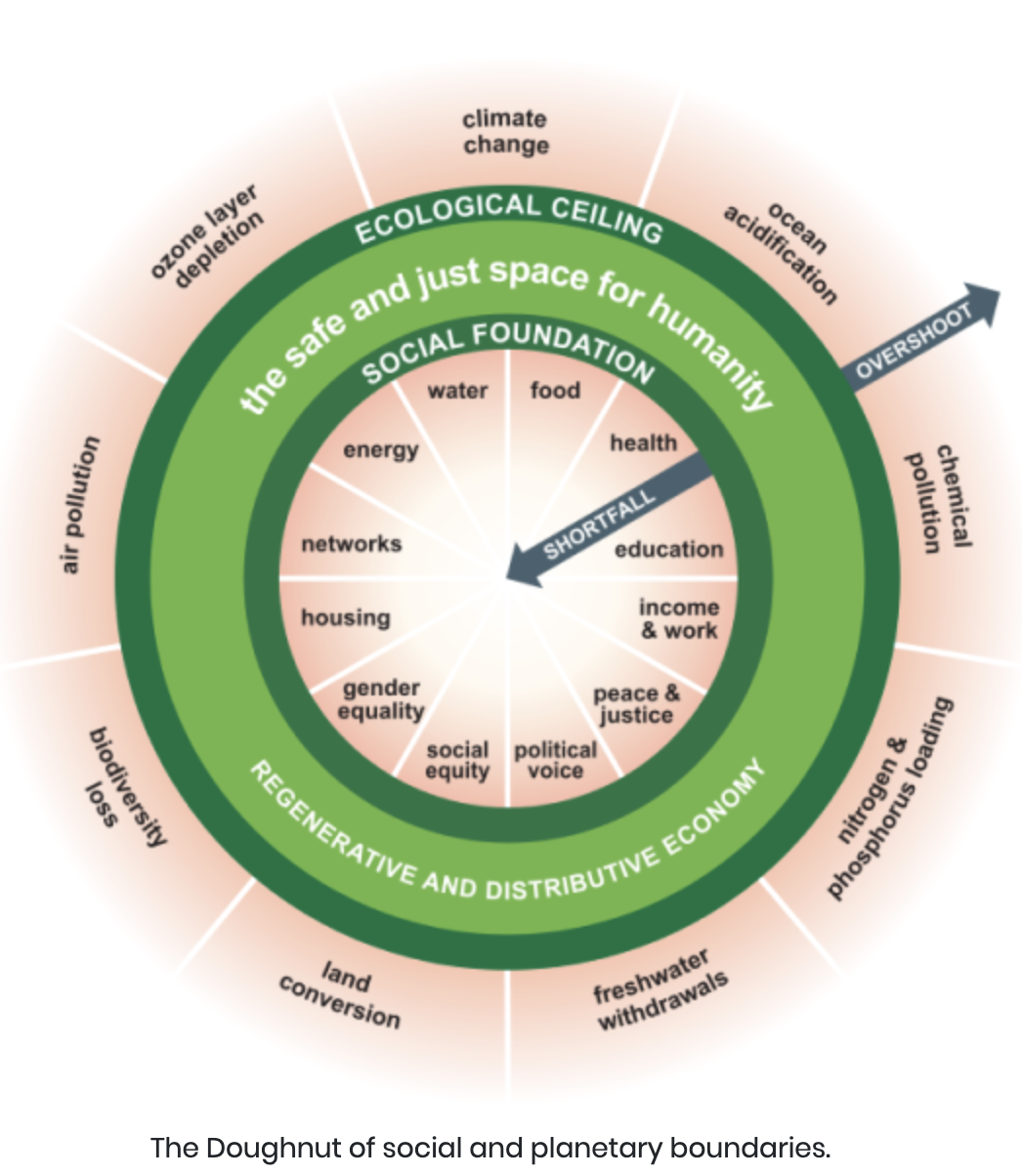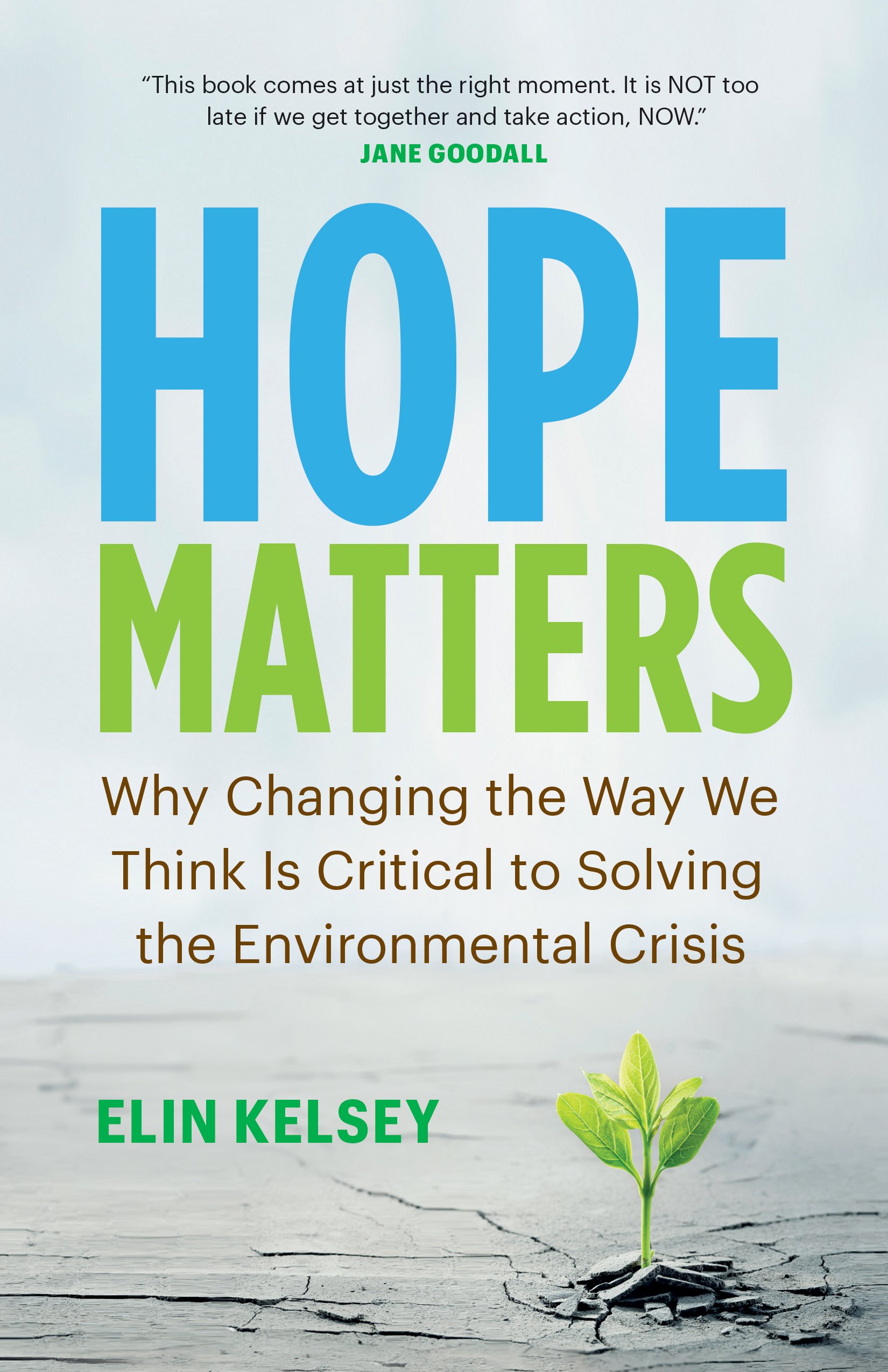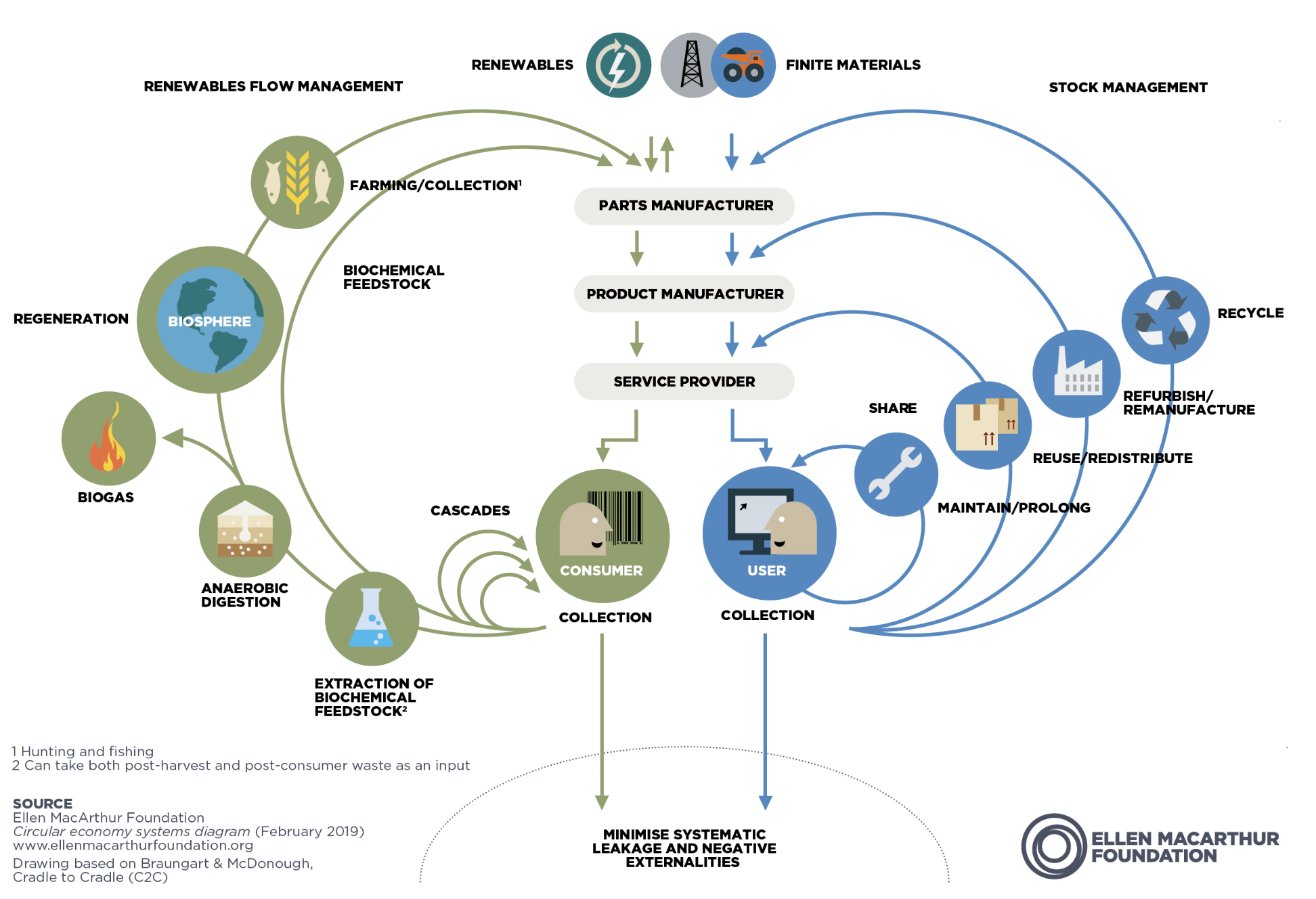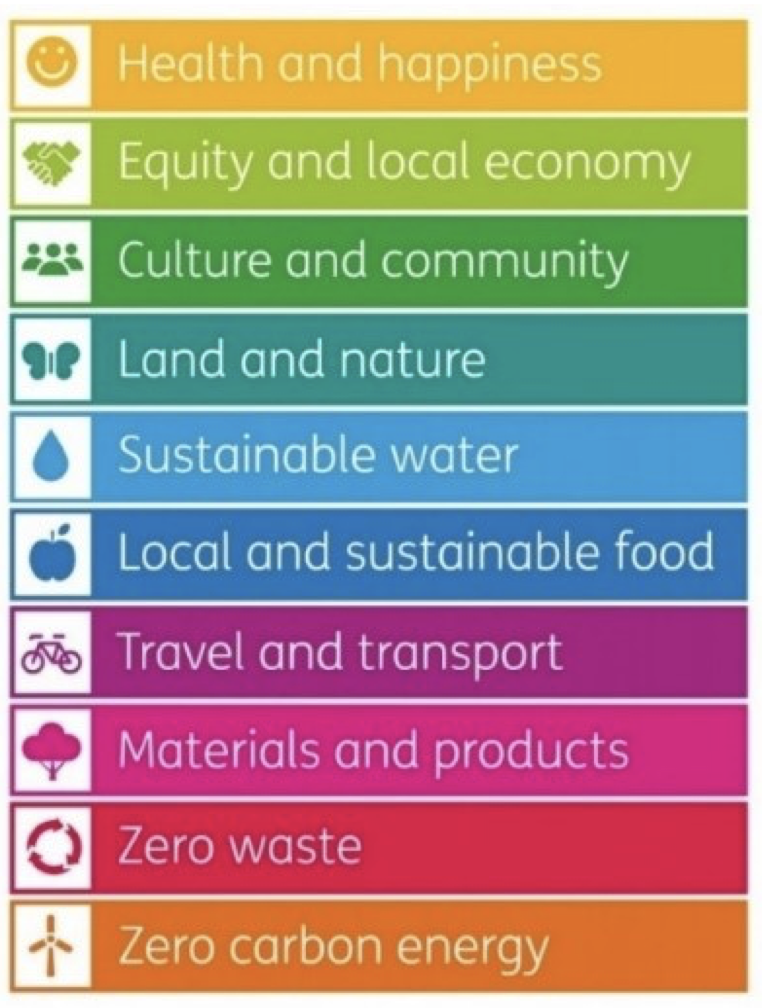This collection of resources is curated to help you explore ideas of regeneration, systems thinking and ways to take climate and nature action in schools and communities. If you have one to add, we would love to hear from you – send us a note.
Explore these topics below.
Exploring the Idea of Regeneration: Creating a Thriving Future for All
Get started with this 5 minute film featuring diverse voices from around the world talking about regeneration. This film is part of a bigger movement with lots of inspiration here.
A favourite in our work, 17 year-old Sierra Robinson from British Columbia, Canada, makes a compelling case for regeneration.
This is another great 5 minute video explaining the concept of regeneration.
The Regenesis Group works across the world to lead and support regenerative practices in projects, communities and organizations. Read their Manifesto which articulates so beautifully the opportunity and the imperative to lead towards a beautiful, just, regenerative future.
Indigenous Voices
Robin Wall Kimmerer is a leading voice in our journey to healing our relationships with each other, and the more-than-human world. Check out her new book, The Serviceberry: Abundance and Reciprocity in the Natural World, released in November 2024. You can order this book and many other resources through our friends at The Outdoor Learning School & Store.

Here Dr. Lyla June, a Diné scholar, artist and activist, takes us through some of her research on Indigenous land management approaches. She invites us to reimagine our role as humans in our eco-systems, and work to heal our relationships between Indigenous and non-Indigenous people.
Learn about seven generations thinking from
Here is an article on using the Seven Generations Principle by Jayla Rousseau-Thomas, an Anishinaabe woman, mother, social worker and scholar.
Our partners at The Outdoor Learning School & Store, a charitable Canadian organization, have a great webpage full of resources to learn more and hear from Indigenous peoples. 100% of their proceeds go back into supporting non-profit initiatives, including Indigenous Learning initiatives.
Mikana, which means path in the Anishinabe language, is an Indigenous non-profit organization whose mission is to work towards social change by educating different audiences on the realities and perspectives of Indigenous peoples. They offer a wide array of resources in both French and English.
Natural Curiosity provides transformative professional learning for educators across Turtle Island (North America) to support them with integrating Indigenous perspectives and environmental inquiry into their practice in the spirit of Truth and Reconciliation.
New Thinking, New Paradigms
Written by Roman Krznaric, this book is provoking us to consider how we can be thinking seven generations forward, consider intergenerational justice, and how to build a path to becoming a good ancestor.
Get a flavour by watching Roman’s TedTalk.
Based on the book, Flourish: Design Paradigms for Our Planetary Emergency, this podcast series interviews thought leaders from around the world including both Roman Krznaric and Kate Raworth featured in this section.
Doughnut Economics looks at the planetary boundaries and social foundation for life. Kate Raworth and the Doughnut Economics Action Lab works with communities around the world charting a new path forward to a healthy, just, safe and thriving world for all. There are many resources and tools to explore.
There is a fabulous new high school curriculum resource on regenerative economics, using the ideas in Doughnut Economics and developed with the input of Kate Raworth and dozens of other educators. Check it out here!
Sometimes we need to ask different questions to provoke new thinking. Dr. Ayana Elizabeth Johnson has a new book What if We Get it Right? Visions of Climate Futures. Hear from over 2 dozen leaders as they talk with Johnson about what we need to do to build a thriving future for all. It is a great resource for inspiring your climate action, with lots of specifics on nature action, climate justice, and more. There is a hardcopy, audiobook, and accompanying website.
One of our favourite interviews is titled “Kids These Days” with Xiye Bastida and Ayisha Siddiqa, two of the youth organizers of the 2019 New York City Youth Climate Strike. If you do nothing else, read/listen to that chapter!
Learning From, With and As Nature
According to the Biomimicry Institute, biomimicry is “a practice that learns from and mimics the strategies found in nature to solve human design challenges—and find hope”.
This podcast episode from summer 2024 is a fascinating and provocative conversation with Janine Benyus, the founder of The Biomimicry Institute.
The Ecological Organisation Framework invites you to consider how your organization can evolve towards becoming kin with the more than human world.
Thank you to researcher and writer Anne-Marie Swan for making this available to work with under the creative commons.
The Reality of the Climate and Biodiversity Crises
Recorded in July 2024, renowned climate and earth scientist Johan Rockström offers the most up-to-date scientific assessment of the state of the planet and explains what must be done to preserve Earth’s resilience to human pressure. This is hard to watch, and important to truly understand the urgency and the importance of the moment we are in.
What On Earth is a great Canadian podcast covering Canadian and global climate solutions. They also have a weekly newsletter.
The Climate Action Tracker is an independent scientific project that tracks government climate action and measures it agains the globally agreed Paris Agreement aim of “holding warming well below 2 degrees Celsius (3.8 degrees Farenheit), and pursuing efforts to limit warming to 1.5 degrees Celsius (2.7 degrees Farenheit)“. Lots of data and analysis by country, sector and more.
Keep current on the Convention on Biological Diversity (the global Biodiversity equivalent of the IPCC COP process), including the details of the 2022 Kunming-Montréal Global Biodiversity Framework.
Intersecting Social Crises – Equity, Justice & Climate
Dr. Ingrid Waldron is a Canadian scholar and the HOPE Chair in Peace and Health in the Global Peace and Social Justice Program in the Faculty of Humanities at McMaster University. She founded The ENRICH Project (Environmental Noxiousness, Racial Inequities & Community Health Project) in 2012. The 2020 Netflix documentary below is based on her 2018 book, There’s Something In the Water: Environmental Racism in Indigenous & Black Communities.
Climate Justice Education helps to see and integrate our work on diversity, equity, inclusion, Indigenous Truth & Reconciliation, and other justice and service learning efforts in our schools and communitis.
This is a great resource to understand climate justice and integrate it into formal and informal education, created by Deb L. Morrison, Kelsie Fowler, Philip Bell and Taiji Nelson out of the University of Washington in Seattle.
Youth Voices, Programs and Resources
The Starfish Canada uplifts youth changemakers, amplifying their voices in climate action while centering our approach on equity and justice. They provide the essential education, resources, communities, and recognition for youth to thrive as leaders in shaping a climate-resilient future.
The Wild Center has a Youth Climate Program including resources for planning and implementing Youth Climate Summits and Educator & Student Retreats.
The Nature Conservancy and The Aspen Institute have created a toolkit of resources for youth leading in climate and nature action.
#Decarbonize is the world’s largest multilingual school-based program on
climate education, advocacy, art, and action.
FES, founded in 2012, is a long standing successful youth-led, youth-serving Canadian charity. Their latest program is Now for Net-Zero. Find out how you can apply for funding for your school project, and learn about the many inspiring stories of youth-led projects helping us get to net-zero.

We invite you to review this collection of poems, Provocations for Education by a Youth Climate Activist, published in September 2024 by PhD student and climate activist Lilian Baraclough. It is a poignant set of reflections on the challenges and emotions related to being a young climate activist in the world today.
Break the Divide, a youth-founded and youth-led Canadian not-for-profit, is giving youth the tools to build resilient, connected and engaged communities through an approach that foregrounds empathy and community knowledge. They support the creation of local, youth-led climate action. Learn more about their work and how you can get connected here.

Learn about The Jellyfish Project to raise youth awareness and advocacy for our oceans, pollution, and the greater climate crisis through live music, presentations and community engagement.
Climate Emotions


Unthinkable is a non-profit creating and curating resources on climate distress and other polycrisis problems. They are on a mission to accelerate coping, healing and changemaking through climate psychology, wisdom traditions and community-based supports. Resources for educators, parents, and for all ages.
The Climate Psychology Alliance of North America has a created an Educator’s Guide to Climate Emotions. It was written by a team of teachers, researchers, and mental health clinicians in consultation with youth climate leaders and climate psychology professionals, and offers a variety of approaches for working with climate emotions in educational settings.
This Handbook was created by Meghan Wise who works in climate action, health and resilience. This guide provides excellent practical advice for teachers, parents, and all of us as we navigate the complex emotions we experience and see in others around us, including our children and students.
The Climate Mental Health Network has a wide array of resources, including resources for teachers in K-12 schools, as well as resources for parents, students, and all of us trying to manage these complex times. There is a lesson plan for High School teachers written by Bonita Ford, a Canadian doing great work in this space. You can learn more about Bonita’s work here.
Hope (the verb!)
Elin Kelsey, a Canadian scholar, public speaker and award-winning author, promotes choosing hope, every day, as a personal practice – including keeping informed of what the good news is, what progress is already underway. Elin says hope is “a powerful political act”.
Joanna Macy & Chris Johnstone first wrote this book in 2012, and published a revised edition in 2022. It is so relevant and helpful in our practice as leaders, and in all our work with our schools and communities.
Find more on Joanna Macy’s work, and the global network of people in the Work That Reconnects inspired by Macy.
Here are some of Elin’s go-to resources: Solutions Journalism, SolutionsU, People Fixing the World BBC, What On Earth CBC, The Upside from The Guardian, Positive.News, Atlas of Tomorrow, Seeds of Good Anthropocenes, Reasons To Be Cheerful, Gap Minder, Net Zero Tracker
Dr. Ayana Elizabeth Johnson talks about how to find joy – find your place – in taking climate action. She shares more here on the climate venn diagram – a great tool for anyone trying to find a way to take greater climate and nature action.
For Educators
There are so many fantastic resources and inspiring schools- check out this page for more.
ThoughtBox Education, a UK social enterprise, is doing wonderful things to lead wellbeing for self, others and the more than human world. They have many free resources for educators and leaders, and a list of great podcast episodes.
In June 2024 UNESCO published this comprehensive Greening Education Guide to teaching and learning in climate action. Gratitude to the contributors from all over the world, including one of our advisors, Dr. Ellen Field.

Earthwards: Transformative Ecological Education is an excellent resource for K12 teachers everywhere. Get a preview in this podcast with author Katharine Burke.
The Sustainability and Education Policy Network has many resources, including this 2021 Report on K-12 Education.
Led by Dr. Ellen Field at Lakehead University and Dr. Hilary Inwood at University of Toronto | Ontario Institute for Studies in Education, this program is running fantastic free webinars, and offering many other resources to be in touch with the latest innovations in Climate Change Education in Canada and beyond.
Published as an open access book in the summer of 2024, you will find a huge range of chapters from around the world highlighting different ways that school leaders are taking an institutional approach to increasing the efforts to a sustainable world.
Check out the chapter, Accelerating Change-Making: Reflections on on Embedding Regenerative Practices in School Climate Action. It was co-authored by one of our advisors, Dr. Ellen Field, our Co-Founder & Executive Director, Michèle Andrews, and leaders from 3 of our Pilot Schools in the Climate Action Accelerator Program: Alison Elliott, Sustainability Director at Trinity College School (Grades 6 – 12 in Port Hope, Ontario); John Hannah, Science Teacher & Eleonor Kerr, Director of Operations at Hillfield Strathallan College (preK-12 school in Hamilton, Ontario), and Drew Stephens, Head of School at Southridge School (K-12 school in Surrey, British Columbia).
Practical Solutions
Project Drawdown is a leading scientific organization identifying solutions across many sectors and regions focused on GHG reductions, with an equity lens. Their website is full of resources, and stories. Drawdown’s Executive Director, Jonathan Foley, presented this TedTalk in January 2023 on both the critical point we are at, and what we can do to chart the path forward.
Here is a link to the Project Drawdown free online video-based course on the basics of the climate crisis and their solutions.
Paul Hawken, the founder of Project Drawdown, is now leading ReGeneration.org to help amplify the solutions to the climate crisis. Plenty of inspiration to fuel your action.
The Ellen MacArthur Foundation has many resources to help us learn more about a circular economy, where the word “waste” doesn’t exist.
Reimagining School Buildings & Campuses
Living Future is creating regenerative buildings and materials that foster human well-being, environmental health, and thriving communities.
The promote a philosophy, a path to advocacy, and the most aspirational certifications for buildings, products and communities in the world. They ask the question, “What if every single act of design and construction made the world a better place?”
Learn more about the Living Building Challenge and the related suite of programs here.
Watch this TedTalk by Jason McLennan, the founder of the Living Building Challenge. Jason is now a Principal at PerkinsWill, the second largest architectural firm in the world. Jason lives in the US Northwest, and is also proud Canadian.
One Planet Living is a vision of a world where we can live happily within the Earth’s resources, using a straightforward framework to inspire and support action.
“Imagine a world where everyone, everywhere lives happy, healthy lives within the limits of the planet, leaving space for wildlife and wilderness. We call this One Planet Living, and we believe it’s achievable.”
Check out their guidance for schools here.
This book published in Summer 2024 highlights 45 schools and environmental learning centres around the world, each one with innovative design focused on the health and wellness of both people and the local eco-system.
Building Your Capacity to Lead towards Regenerative Practice
We are growing a community of practice in the K12 sector for anyone wanting to build their capacity to lead toward a thriving future for all. We are planning some professional learning opportunities for school and system leaders. If you are interested in being connected to this work, please join our mailing list to hear about new programming.
Future Stewards has developed an array of tools and resources for people working towards a regenerative future.
The Regenesis Intitute for Regenerative Practice hosts online and hybrid programs all over the world to support more people developing these skills to work in any field, sector or setting.
The Really Regenerative Centre in the UK is working towards a regenerative economy.
The Regenerative Real Estate Podcast has interviewed an amazing array of thought leaders in their 100+ episodes.
There are many others from whom we can learn, including:
Daniel Christian Wahl, author, educator and consultant. Here is a recent podcast interview with Daniel.
Carol Sandford, author and consultant.
Michelle Holliday and Thrivable World – with many resources and tools.

































